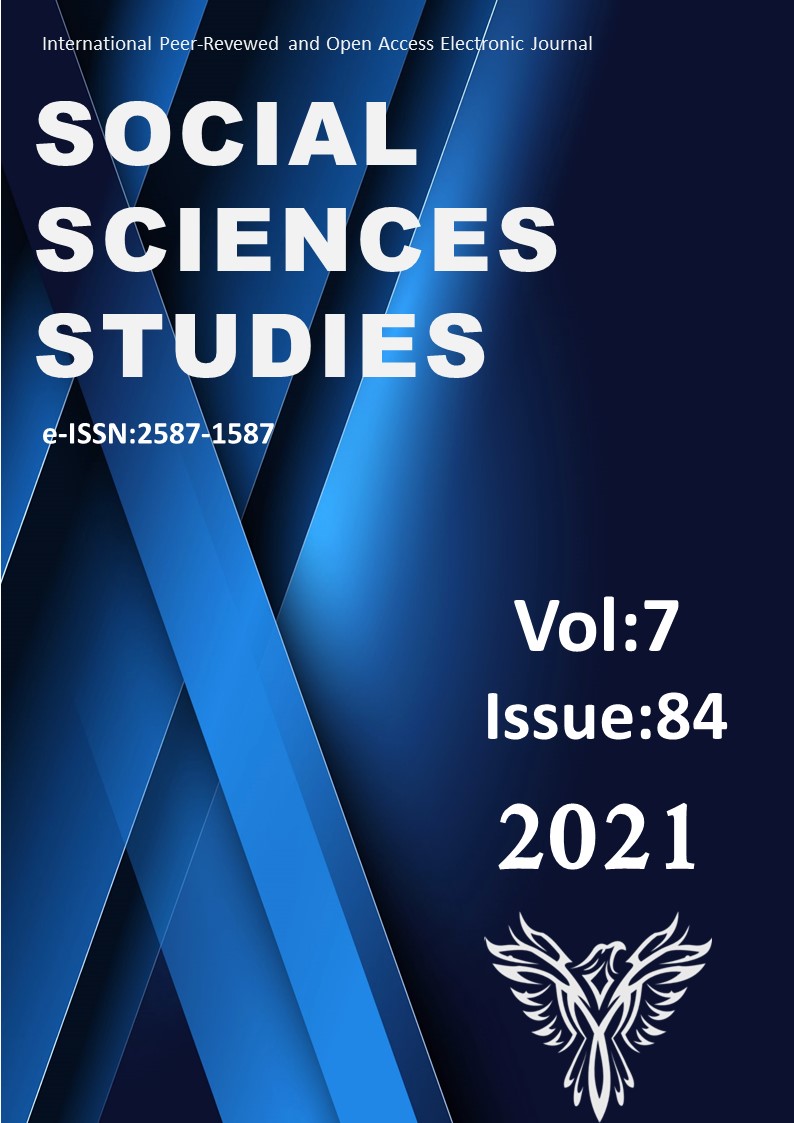Author :
Abstract
Uluslararasılaşma stratejilerinin en önemli unsurlarından birisi olan eğitim diplomasisi pek çok devlet tarafından kabul edilmiş ve uluslararası eğitim faaliyetleri bu kapsamda her geçen gün artarak devam etmektedir. Bu anlamda Türkiye ‘de bu politika kapsamında özellikle son 20 yılda yabancı uyruklu öğrenci alımında büyük gelişim göstermiştir. Üniversite eğitimi öğrenciler için kariyer planlaması, iyi bir iş bulabilme, mesleki yeterlilik kazanabilme ve benzeri amaçları olan çok önemli bir süreçtir. Bu eğitimi yabancı bir ülkede alan gençler için bu daha zorlu bir zaman dilimidir. Bu süreçte öğrenciler kaygılarını arttıracak çok sayıda sorunla karşılaşırlar ve bu kaygılarını yönetmeye çalışırlar. Bu mücadele çoğu zaman gençlerde daha fazla kaygıya sebep olmaktadır. Durum kaygı olarak ortaya çıkan bu süreç, yaşanabilecek olumsuzlukların düşüncesi ile sürekli kaygıya dönüşebilir. 2019 yılının sonlarından itibaren tüm dünyaya yayılan ve üniversite gençliğinin de ilk defa karşılaştığı Covid-19 pandemi sürecinin kaygı düzeylerini nasıl etkilediğini incelemek önemlidir. Literatürde kaygı düzeylerini belirleyen pek çok çalışma mevcuttur. Fakat yabancı uyruklu öğrencilerin kaygı düzeyleri üzerine çok az sayıda çalışma yapılmıştır. Yabancı uyruklu üniversite öğrencilerinin Covid-19 pandemi sürecinde kaygı düzeylerini ortaya çıkarmak amacıyla yapılan bu araştırmanın evrenini, 2020-2021 eğitim-öğretim döneminde yüzyüze eğitime devam eden Bandırma Onyedi Eylül Üniversitesi’ndeki yabancı uyruklu 1635 öğrenci, araştırmanın örneklemini ise olasılığa dayalı olmayan örnekleme yöntemlerinden kolayda örnekleme yöntemine göre ulaşılabilen ve anketi cevaplayan 298 öğrenci oluşturmaktadır. Araştırmada Covid-19 pandemi sürecinde yabancı uyruklu üniversite öğrencilerinin sürekli kaygı- durumluk kaygı düzeylerinin ne durumda olduğu ve üniversite öğrencilerinin kaygı düzeylerinin cinsiyet, yaş, okul türü, barınma, pandemi sürecinde bulunmak istenilen yer ve çalışma durumu değişkenlerine göre anlamlı bir farklılık gösterip göstermediği analiz edilip sonuçlar yorumlanmıştır.
Keywords
Abstract
Education diplomacy, which is one of the most important elements of internationalization strategies, has been used by many states and in this context, international education activities have a big role in education diplomacy. In this sense, within the scope of this policy in Turkey, especially in the last 20 years, there has been a great improvement in the admission of foreign students. University education is a very important process for students with career planning, finding a good job, gaining professional competence and similar purposes. For young people who receive this training in a foreign country, it is a challenge. In this process, students encounter many problems that will increase their anxiety and try to manage these concerns. This struggle often causes more anxiety. This process, which appears as situational anxiety, can turn into constant anxiety with the thought of possible negativities. It is important to examine how the Covid-19 pandemic process, which has spread all over the world since the end of 2019 affects foreign students’ anxiety levels. There are many studies in the literature that determine anxiety levels. However, very few studies have been conducted on the anxiety levels of foreign students. The universe of this research, which was conducted to reveal the anxiety levels of foreign university students during the Covid-19 pandemic process, consists of 1635 foreign students at Bandırma Onyedi Eylül University, who continue face-to-face education in the 2020-2021 academic year, and the sample of the research is easily selected from non-probability sampling methods. It consists of 298 students who can be reached according to the sampling method and answered the questionnaire. In the study, it was analyzed whether the trait anxiety-state anxiety levels of foreign university students during the Covid-19 pandemic process and whether the anxiety levels of university students differ significantly according to the variables of gender, age, school type, accommodation, place and working status during the pandemic process. The results are interpreted.





